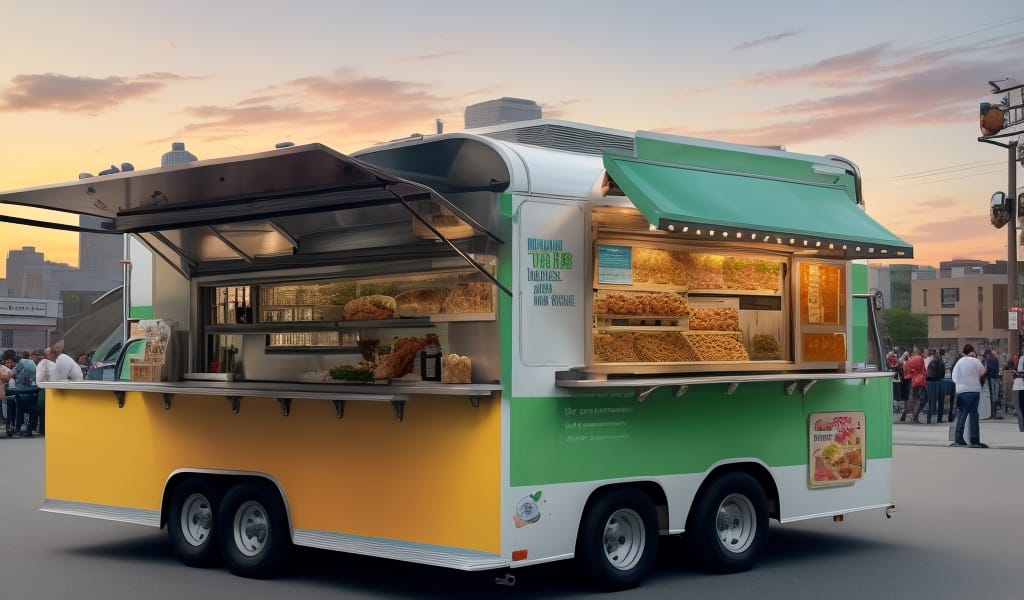Key Takeaways:
- Assess local food trends and demands before investing in a food truck business in 2025.
- Evaluate potential ROI, considering initial expenses, ongoing costs, and projected revenue.
- Understand the pros, such as mobility and lower overhead costs, of running a mobile restaurant.
- Be aware of the cons, including limited space and potential location restrictions, of the food truck business.
- Continually innovate and adapt your menu, service, and locations to maintain competitiveness and profitability.
Should You Invest in a Food Truck in 2025?
Pros and Cons of Launching a Food Truck
Food trucks have become a vibrant and integral part of the culinary landscape. With their ability to offer innovative dishes, lower initial investment, and flexible location strategies, the food truck business model appeals to seasoned restaurateurs and aspiring entrepreneurs alike. But is investing in a food truck in 2025 still a wise decision? This article explores the key advantages and disadvantages of starting a mobile restaurant, helping you determine if the ROI makes sense for your culinary ambitions.
The Growing Popularity of Food Trucks
Over the past decade, food trucks have evolved significantly, transitioning from quick snack outlets to gourmet culinary experiences. Consumers now actively seek out mobile restaurants for unique dining opportunities, making food trucks a staple at events, festivals, and busy urban streets. This popularity continues to surge, driven by factors such as social media exposure, diverse culinary trends, and the convenience-driven lifestyle of modern consumers.
Why Food Trucks Remain Trendy
- Social Media Influence: Platforms like Instagram and TikTok give food trucks unparalleled visibility, allowing them to quickly build loyal followings.
- Culinary Innovation: Mobile restaurants are known for their creative menus, often experimenting with fusion cuisine or niche food trends.
- Convenience & Accessibility: Food trucks offer a casual dining experience with faster service, catering well to today’s busy consumers.
Advantages of Launching a Food Truck Business
Lower Initial Investment
One of the biggest draws of opening a food truck is the substantially lower startup cost compared to traditional brick-and-mortar restaurants. A fully-equipped food truck typically requires an initial investment between $50,000 to $200,000, whereas traditional restaurants often require significantly higher capital.
- No long-term lease or rental agreements
- Reduced staffing costs due to smaller operational scale
- Fewer overhead expenses (utilities, property taxes, building maintenance)
Mobility and Flexibility
A mobile restaurant provides unparalleled flexibility in choosing your location. Unlike fixed-location establishments, food trucks can move to areas experiencing higher foot traffic or visit multiple locations within a single day.
- Access events, festivals, and markets to increase exposure
- Test various locations to identify profitable customer segments
- Adapt quickly to shifts in market demand or changes in local regulations
Rapid Market Testing and Menu Innovation
Food trucks offer a unique opportunity to test new culinary concepts and menu items with minimal risk. Operators can quickly gauge customer reactions, refine offerings, and build a loyal following before considering expansion into permanent locations.
- Immediate customer feedback for menu adjustments
- Ability to pivot quickly based on market response
- Low-risk experimentation with diverse culinary concepts
Case Study: Kogi BBQ Food Truck
An excellent example of food truck success is Los Angeles’ Kogi BBQ. Launched by chef Roy Choi, Kogi BBQ combined Korean and Mexican cuisine, rapidly gaining popularity through social media. Today, the brand has expanded beyond trucks into brick-and-mortar locations, showcasing the potential of mobile restaurants as a starting point for broader success.
Potential Challenges and Drawbacks
Regulatory Hurdles and Permitting Issues
While food trucks offer flexibility, they also face unique regulatory challenges. Local governments often have strict licensing, health codes, and zoning regulations that vary considerably from city to city.
- Complex permitting processes that differ by jurisdiction
- Limited parking availability or location restrictions
- Health inspections and compliance with shifting local codes
Seasonality and Weather Dependence
Operating a food truck inherently exposes you to weather and seasonal fluctuations, which can significantly impact sales. Outdoor dining options are less appealing during colder months or adverse weather conditions, potentially reducing profitability.
- Revenue fluctuations due to inclement weather
- Need to plan for seasonal operation or alternative revenue streams
- Potentially higher costs associated with winterization or weather protection equipment
Limited Space and Operational Constraints
Operating within the confined space of a truck presents operational challenges, including storage limitations, limited menu options, and logistical constraints. Efficient inventory management, streamlined menus, and skilled staff are essential to overcome these limitations.
- Reduced menu size and product offerings
- Challenging inventory management due to limited storage
- Potential difficulty in maintaining consistent quality at scale
Case Study: Regulatory Challenges in New York City
In New York City, strict regulations limit the number of food truck permits, leading to expensive black-market permit trading. Operators often face fines, parking restrictions, and limited access to high-foot-traffic areas. This case highlights the importance of thoroughly understanding local regulations before investing in a food truck.
Calculating ROI for a Food Truck Business
Assessing return on investment (ROI) is critical before launching any new venture. While food trucks generally offer lower upfront costs, accurately calculating ROI requires careful consideration of initial investments, operating expenses, revenue projections, and potential risks.
Steps to Estimate Your Food Truck ROI
- Initial Investment Calculation: Include truck purchase, outfitting, licensing, and marketing costs.
- Revenue Projections: Estimate daily revenue based on local market research, seasonal variations, and average customer spend.
- Operating Expenses: Factor in staff wages, fuel, food costs, ongoing maintenance, and insurance.
- Break-Even Analysis: Calculate how long it will take to recoup your investment based on projected income and expenses.
Example: ROI Scenario
Consider a hypothetical scenario where your total initial investment is $100,000. With estimated average daily revenue of $1,000, operating expenses of $600 daily, and operating five days per week, your weekly profit would be approximately $2,000. This translates to $104,000 annual profits, meaning you could recoup your initial investment in less than a year, assuming consistent performance. However, actual numbers will vary based on market conditions, location, and operational efficiency.
Actionable Tips for Prospective Food Truck Owners
- Conduct Thorough Market Research: Identify underserved culinary niches and high-foot-traffic locations.
- Develop a Unique and Memorable Brand: Stand out through innovative culinary concepts, eye-catching design, and engaging social media presence.
- Plan for Regulatory Compliance: Research local regulations and permitting processes extensively before investing.
- Establish Strong Vendor Relationships: Build reliable supply chains to efficiently manage inventory constraints inherent to food trucks.
- Leverage Social Media Marketing: Regularly engage customers online, providing updates on menu items, locations, and special promotions.
Conclusion: Is a Food Truck the Right Investment for You?
Launching a food truck business in 2025 remains an attractive proposition, offering entrepreneurs lower initial investments, flexible operations, and opportunities for culinary innovation. However, potential food truck owners must carefully weigh these benefits against significant challenges, including regulatory hurdles, weather dependence, and operational constraints. By conducting thorough market research, accurately calculating ROI, and proactively addressing potential obstacles, restaurant owners and managers can make informed decisions that maximize their chances for success in the dynamic food truck industry.






Comments
Be the first to comment on this article.